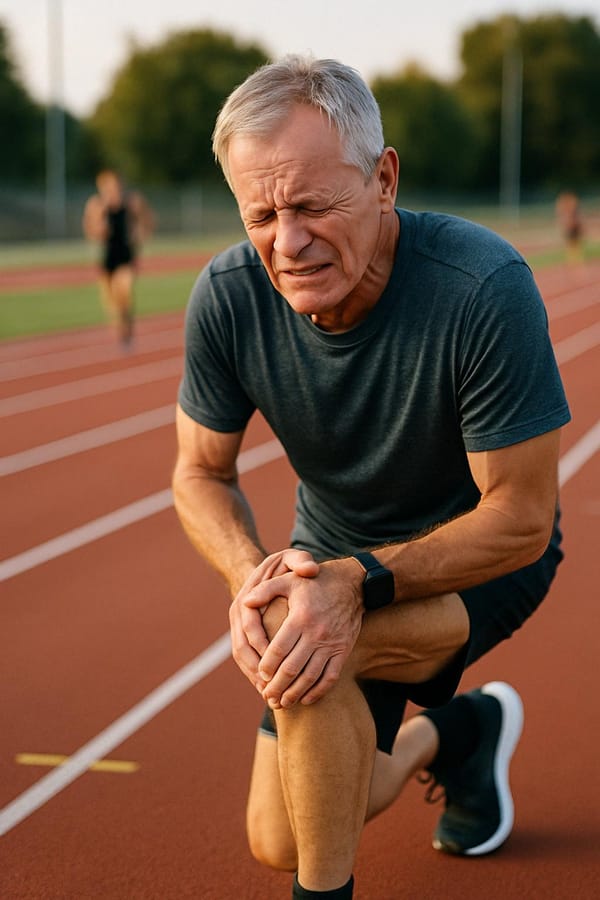Unveiling the Truth About Sugar Substitutes: A Healthy Option for Seniors or a Hidden Risk?
An in-depth look at sugar substitutes for seniors—understanding their types, benefits, cautions, and scientific research. Learn how to use them safely and reduce diabetes risk.

Introduction
When it comes to managing blood sugar levels and overall health, sugar often becomes a culprit, particularly among older adults with an elevated risk of chronic non-communicable diseases such as diabetes, hypertension, and heart diseases. It is thus no surprise that the market is flooded with various types, names, and forms of sugar substitutes. Each type comes with its own distinct properties, functionality, and safety profile.
In this article, we will delve into the different kinds of sugar substitutes available, the research backing their safety, and whether they truly benefit seniors looking to control their blood sugar levels and mitigate chronic disease risks. Our goal is to equip you with scientifically grounded information that will help guide you in making safe consumption decisions.
What Are Sugar Substitutes? Sugar substitutes refer to sweetening agents whose sweetness level is similar to or greater than that of table sugar but with fewer or virtually no calories. These substitutes can be categorized into several types, including artificial sweeteners, natural sweeteners, and sugar alcohols. Each has its own distinct chemical composition, sweetness level, side effects, and usage guidelines.
The soaring popularity of sugar substitutes stems from modern dietary trends that aim to reduce excessive caloric intake, avoid surges in blood sugar levels, and lower the risk of non-communicable diseases (NCDs). This is particularly critical for older adults who need to closely monitor their health. However, each sugar substitute requires careful consideration—safety over the long term, recommended daily intake, and corroborating research are all factors that should inform consumer choice.
Why Older Adults Need to Pay Attention to Sugar Substitutes
- Elevated Blood Sugar Levels Older adults often experience a decline in metabolic efficiency, making insulin resistance more likely. This leads to rapid elevations in blood sugar when consuming large amounts of sugar, increasing the risk of diabetes. Sugar substitutes, therefore, become a popular choice.
- Hypertension and Cardiovascular Health Aging can weaken blood vessels and the heart. High sugar intake has been correlated with increased blood pressure and inflammation. Using suitable sugar substitutes that do not spike blood sugar may help mitigate these risks.
- Weight Management and Obesity Decreased physical activity and overall metabolic rate in seniors can lead to rapid weight gain when consuming excessive sugar calories. Lower-calorie sugar substitutes thus provide a viable strategy for weight control.
- Oral Health Sugar fosters bacterial growth, leading to gum disease and cavities. For older adults who find oral healthcare challenging, sugar substitutes that do not produce significant amounts of acid in the mouth can better preserve oral health.
Types of Sugar Substitutes Below are the main categories of sugar substitutes, along with information relevant to older adults. These insights derive from reputable institutions such as the U.S. Food and Drug Administration (FDA), the European Food Safety Authority (EFSA), the World Health Organization (WHO), and various scientific studies.
- Artificial Sweeteners Artificial sweeteners are chemically synthesized in laboratories and have special structures that confer sweetness levels multiple times higher than sugar, typically providing minimal or virtually zero calories. They are an ideal choice for controlling caloric or sugar intake.
Examples:
- Aspartame
- Sweetness: Approximately 180-200 times sweeter than sugar
- Key Points: Offers a flavor profile similar to sugar but is less heat-stable, making it unsuitable for high-temperature cooking or baking.
- Research: Some reports link aspartame to headaches or migraines in certain individuals (Journal of Headache and Pain, 2020), but no conclusive evidence indicates serious harm if consumed within FDA guidelines.
- Acceptable Daily Intake (ADI): No more than 50 mg/kg body weight per day.
- Saccharin
- Sweetness: 200-700 times sweeter than sugar
- Key Points: Highly heat-resistant but can leave a bitter aftertaste. Consumer preference can vary.
- Research: Older studies suggested a correlation with cancer in lab animals (Cancer Research, 1981). However, a review of human data found insufficient evidence, and the FDA ultimately removed its cancer warning label.
- ADI: No more than 5 mg/kg body weight per day.
- Sucralose
- Sweetness: 600 times sweeter than sugar
- Key Points: Stable under high heat. Suitable for baking and cooking.
- Research: Considered safe within recommended limits. Some studies posit potential impacts on gut microbes (Frontiers in Microbiology, 2021), though no definitive human studies are available.
- ADI: No more than 5 mg/kg body weight per day.
- Acesulfame Potassium (Acesulfame-K)
- Sweetness: 200 times sweeter than sugar
- Key Points: Very heat-stable. Frequently used in combination with other sweeteners.
- Research: Generally safe, though some animal studies hint at possible kidney issues (Toxicology Letters, 2013). Still, real-life consumption is far lower than doses used in such studies.
- ADI: No more than 15 mg/kg body weight per day.
Summary of Artificial Sweeteners:
- Pros:
- Highly sweet even in small amounts.
- Low to no caloric impact.
- Beneficial for weight management and individuals with diabetes.
- Cons:
- Some side effects remain ambiguous.
- Adhere strictly to recommended intake.
- Consult a doctor if you have kidney disease or other metabolic conditions.
- Natural Sweeteners Natural sweeteners are derived from plant sources, which often undergo minimal processing. Although perceived as more “natural,” safety depends on studies supporting their consumption. Not all natural sweeteners are automatically risk-free.
Examples:
- Stevia
- Source: Extracted from the leaves of the Stevia rebaudiana plant.
- Sweetness: 200-300 times sweeter than sugar.
- Pros: Contains zero calories and is cited by some studies (Journal of Medicinal Food, 2018) as helping manage blood sugar levels.
- Cons: May have a slightly bitter aftertaste, and commercial stevia products may include additives.
- ADI: No more than 4 mg/kg body weight per day (as recommended by JECFA/WHO).
- Monk Fruit (Luo Han Guo)
- Source: Extracted from the monk fruit, a type of gourd.
- Sweetness: 150-300 times sweeter than sugar.
- Pros: Contains natural antioxidants and minimally impacts blood sugar.
- Cons: Generally more expensive. Some brands mix monk fruit extract with sugar alcohols—read labels thoroughly.
- Research: Limited but mostly positive.
- Coconut Sugar
- Source: Sap from coconut palm blossoms.
- Sweetness: Similar to brown sugar with a mild caramel flavor.
- Pros: Slightly lower glycemic index (GI of ~35) compared to standard sugar.
- Cons: Still contains carbohydrates and calories. Not ideal for heavy use among individuals with diabetes.
- Research: Long-term health data remains limited.
Summary of Natural Sweeteners:
- Pros:
- Natural sources with potential antioxidants.
- Generally lower GI than standard sugar.
- Cons:
- May still contain carbs and calories.
- Can be expensive.
- Check for additives.
- Sugar Alcohols Sugar alcohols (e.g., Sorbitol, Xylitol, Erythritol, Maltitol) are polyols that offer sweetness with fewer calories.
Examples:
- Xylitol
- Sweetness: Roughly equal to sugar.
- Calories: ~2.4 kcal/g (vs. 4 kcal/g for sugar).
- Pros: Minimal effect on blood sugar and helps reduce cavity risk.
- Cons: Potentially induces bloating or diarrhea if consumed excessively. Consult a doctor if you have kidney issues.
- Erythritol
- Sweetness: ~70% as sweet as sugar.
- Calories: ~0.2 kcal/g (very low).
- Pros: Nearly no impact on blood sugar; excreted mostly via urine.
- Cons: May cause mild digestive discomfort in large quantities, though less so than xylitol.
- Research: Generally positive, though more studies are needed on older adults.
- Maltitol
- Sweetness: ~75-90% as sweet as sugar.
- Calories: ~2.1 kcal/g.
- Pros: Taste closely resembles sugar, lower calorie intake.
- Cons: May cause laxative effects or gastrointestinal discomfort in high amounts.
Summary of Sugar Alcohols:
- Pros:
- Low GI, aiding in blood sugar management.
- Fewer calories.
- Possibly beneficial for dental health.
- Cons:
- Potential GI side effects.
- Use cautiously if you have digestive issues.
Safety According to Research: Are They Really Safe? Most studies find sugar substitutes “generally recognized as safe” (GRAS) when consumed within recommended daily limits (FDA, EFSA, WHO). However, “safe” typically means no acute toxicity or significantly heightened risk of serious diseases. Long-term effects still need further exploration.
- Gut Microbiome Impact Some newer studies (Frontiers in Nutrition, 2022) suggest artificial sweeteners might alter gut bacteria composition, potentially affecting metabolism and immunity over time. Most data is from lab or animal studies.
- Cardiovascular Risk Certain observational studies note correlations between diet soda consumption (with artificial sweeteners) and metabolic syndrome, though direct causation isn’t proven. Seniors at high risk, such as those with hyperlipidemia or high blood pressure, should consult healthcare providers about suitable amounts.
- Cancer Risk While earlier research raised concerns about saccharin and aspartame, current epidemiological evidence doesn’t support a clear link in humans. Regulatory agencies like the FDA and EFSA still approve these sweeteners, stating they are safe within recommended intakes.
Recommendations for Seniors Using Sugar Substitutes
- Seek Professional Advice
- If you have chronic conditions like diabetes, hypertension, or kidney disease, consult medical professionals or dietitians.
- Read Labels Carefully
- Check for additional ingredients such as sugars or multiple sweeteners.
- Note the Acceptable Daily Intake (ADI) to prevent overconsumption.
- Gradual Testing
- Start with small amounts, especially if you’re prone to gastrointestinal issues.
- Discontinue and consult a doctor if adverse symptoms appear.
- Consider GI (Glycemic Index)
- Some substitutes still slightly affect blood sugar, e.g., coconut sugar or certain sugar alcohols.
- Regularly monitor blood glucose or consult with healthcare providers.
- Cooking Applications
- Choose heat-stable options like sucralose or heat-resistant stevia for baking.
- Avoid aspartame in high-heat recipes.
- Avoid Excessive Use
- Even low-calorie sweeteners shouldn’t be viewed as an unlimited license to consume sweets.
- Strive to reduce sweetness cravings altogether.
Important Considerations for Older Adults
- Kidney Health
- Seniors with compromised renal function should pay attention to sweeteners containing potassium ions (e.g., Acesulfame-K).
- GI Disorders
- Conditions like IBS can be exacerbated by sugar alcohols.
- Drug Interactions
- Inform doctors or pharmacists about any sweetener usage.
Holistic Health Tips for Seniors Beyond choosing sugar substitutes, holistic health involves balanced eating, regular exercise, stress management, and sufficient rest. Regular screenings (blood pressure, blood sugar, lipid profile) enable early detection and more effective intervention.
Sample Meal Ideas Using Sugar Substitutes
- Herbal Infusions
- Combine pandan leaves, lemongrass, or butterfly pea. Use a small amount of stevia.
- Homemade Whole Wheat Bread
- Use sucralose or heat-stable stevia, plus seeds like flax or chia.
- Low-Fat Yogurt
- If plain yogurt tastes too tart, add a small amount of erythritol or stevia, and top with low-sugar fruits.
- Vegetable-Fruit Smoothies
- Choose low-sugar fruits (dragon fruit, cucumber, spinach) and sweeten with monk fruit or stevia.
Conclusion Using sugar substitutes can help older adults limit sugar intake and lower their risk of chronic diseases like diabetes, hypertension, and heart disease. However, each sweetener has its own pros, cons, and recommended daily intake.
Although artificial sweeteners generally maintain a “safe” status, research continues on their long-term effects. Adhering to guidelines, reading product labels, and seeking medical advice remain prudent steps.
Ultimately, the healthiest path is to gradually reduce your overall sugar craving while embracing a balanced diet, regular exercise, and periodic health check-ups.
Warning
- Sugar substitutes are not a miracle cure for all diseases. Excessive consumption may pose unexpected risks.
- If you have existing conditions like kidney disease or diabetes, consult your physician.
- This article provides general information and does not serve as a medical diagnosis or treatment plan.
We hope this article clarifies sugar substitutes for seniors, enabling more informed choices when seeking to maintain long-term health and reduce chronic disease risks.



